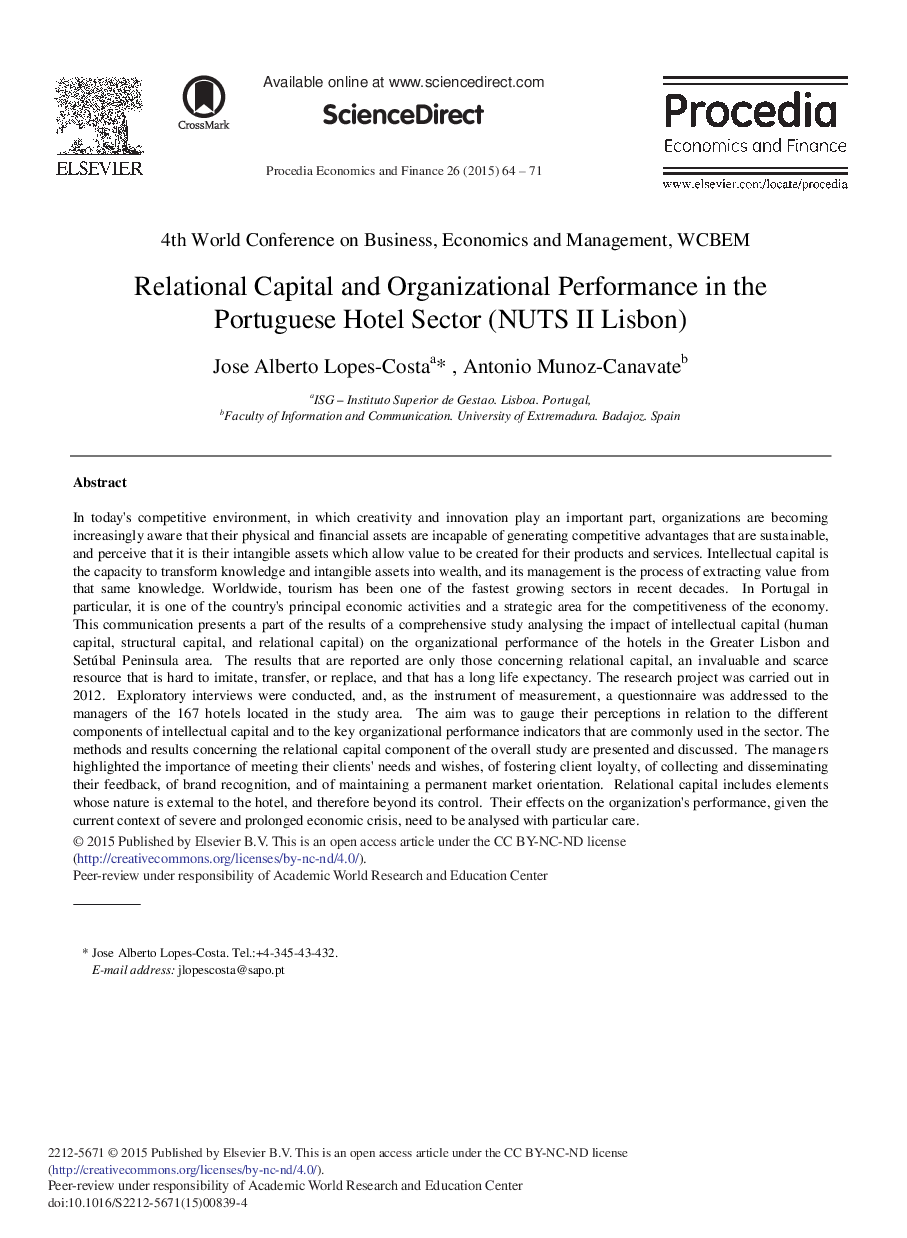| Article ID | Journal | Published Year | Pages | File Type |
|---|---|---|---|---|
| 980907 | Procedia Economics and Finance | 2015 | 8 Pages |
Abstract
In today's competitive environment, in which creativity and innovation play an important part, organizations are becoming increasingly aware that their physical and financial assets are incapable of generating competitive advantages that are sustainable, and perceive that it is their intangible assets which allow value to be created for their products and services. Intellectual capital is the capacity to transform knowledge and intangible assets into wealth, and its management is the process of extracting value from that same knowledge. Worldwide, tourism has been one of the fastest growing sectors in recent decades. In Portugal in particular, it is one of the country's principal economic activities and a strategic area for the competitiveness of the economy. This communication presents a part of the results of a comprehensive study analysing the impact of intellectual capital (human capital, structural capital, and relational capital) on the organizational performance of the hotels in the Greater Lisbon and Setúbal Peninsula area. The results that are reported are only those concerning relational capital, an invaluable and scarce resource that is hard to imitate, transfer, or replace, and that has a long life expectancy. The research project was carried out in 2012. Exploratory interviews were conducted, and, as the instrument of measurement, a questionnaire was addressed to the managers of the 167 hotels located in the study area. The aim was to gauge their perceptions in relation to the different components of intellectual capital and to the key organizational performance indicators that are commonly used in the sector. The methods and results concerning the relational capital component of the overall study are presented and discussed. The managers highlighted the importance of meeting their clients' needs and wishes, of fostering client loyalty, of collecting and disseminating their feedback, of brand recognition, and of maintaining a permanent market orientation. Relational capital includes elements whose nature is external to the hotel, and therefore beyond its control. Their effects on the organization's performance, given the current context of severe and prolonged economic crisis, need to be analysed with particular care.
Keywords
Related Topics
Social Sciences and Humanities
Economics, Econometrics and Finance
Economics and Econometrics
Authors
Jose Alberto Lopes-Costa, Antonio Munoz-Canavate,
